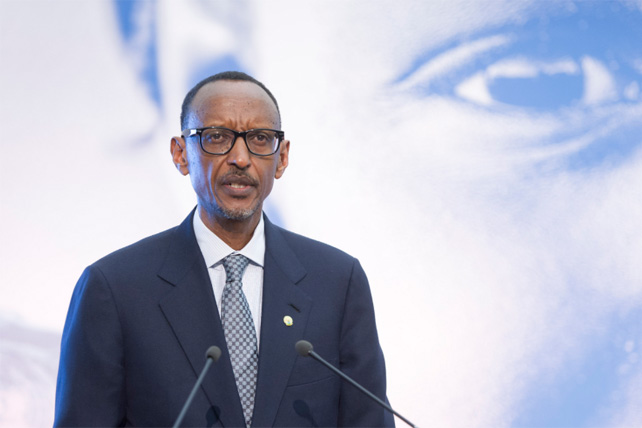Senior authorities in Rwanda have called for a stricter approach to drug offences in an ostensible bid to protect young people, but their harsh rhetoric and proposed punitive policies may instead worsen the harms of drugs for the country’s youth.
Public discourse around drugs has become increasingly panicked in Rwanda in recent weeks. In late December, President Paul Kagame cautioned that continued drug use in the country would “allow our youth to go to waste”. In January, the Inspector General of Police, Emmanuel Gasana, warned that drug use must be stopped to prevent “a wasted generation”, while the Minister for Local Government, Francis Kaboneka, has said that "the first enemy of the youth today are illicit drugs". John Rucyahana – President of the Unity and Reconciliation Commission, an influential national institution created to maintain peace and human rights after the 1994 Rwandan Genocide – proposed that authorities publicly “name and shame” people who use drugs.
On January 11, justice minister Johnston Busingye warned that Rwanda is “under some sort of attack” from drugs, and that relevant authorities must “scale up [their] efforts in fighting” such offences because drug use “destroys our children, impairs their thinking, health, influences violence, [and] kills the capacity of education and [the] labour industry”. In a bold and unsubstantiated statement, Busingye added that “drugs are the root cause of human rights violations”.
This hyperbolic and stigmatising discourse, which presents drug use as an existential threat to the fabric of Rwandan society, may worsen the harm of drug misuse in the country – rather than reduce it.
A recently-published report by the Global Commission on Drug Policy described the danger of creating a “moral panic” around drug use, whereby the “negative perceptions and fears of the general public, reinforced by negative media portrayals, [make] drugs and people who use them an ‘easy target’ for politicians and other elected officials who want to curry favour with their voters”. Stimulating such panic, and accompanying it with punitive policies, can make people with problematic drug use afraid to ask for help – thereby increasing the prevalence of drug misuse and associated health issues (such as dependence, overdose, or the transmission of infectious diseases).
A running theme in authorities’ recent statements on drug use is the impact that such substances can have on young people, and how drugs may affect their personal development, education, and careers. In December, education minister Eugene Mutimura bluntly summarised this perception, stating “you can’t build your country if you are spoilt by drugs”. Yet a new drug law, rather than drugs themselves, may pose the biggest threat to some young Rwandans’ career aspirations in 2018.
In early January, the Rwanda Education Board (REB) announced that every citizen accepted to study at a foreign university must now undergo a drug test, and be declared “drug-free”, to be eligible to leave the country to pursue their studies. Essentially, Rwandan students who have successfully passed through primary and secondary education, have met the rigorous standards required to attend esteemed international institutions, and have endured potentially time-consuming and expensive visa processes, will now be prevented from pursuing their career if they have occasionally – or even just once – used an illegal drug. This denial of a quality education to hardworking young people seems more akin to President Kagame’s description of letting “youth go to waste” than occasional drug use.
It is uncertain how an intensified crackdown on people who commit drug offences will manifest in Rwanda, but it may involve increasingly punitive sentencing. Speaking on January 11, the Minister for Local Government, Francis Kaboneka, decried the current sentencing approach for supposed leniency. “Instead of someone found guilty being sentenced to two years or so, only for them to return to selling drugs, the sentence should be more punitive and I suggest life sentence. That way, it will be deterrent,” he proclaimed.
With apparent wide political support for stricter drug laws, and the continued stigmatisation of people who use drugs, it seems that 2018 may lead to worsened harms of drugs in Rwanda, with young people bearing the brunt of these harms.


